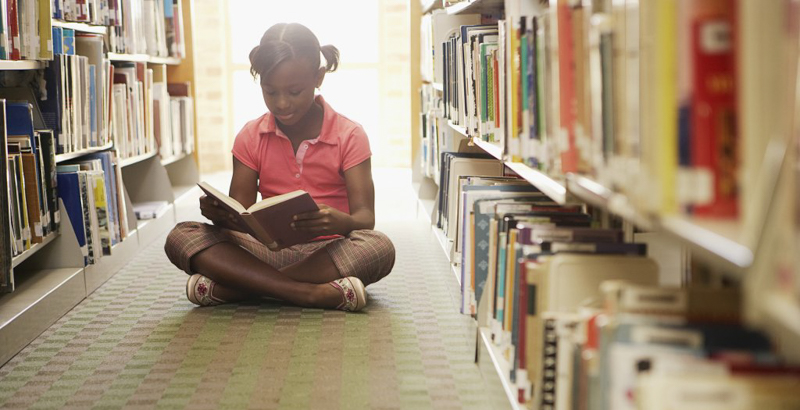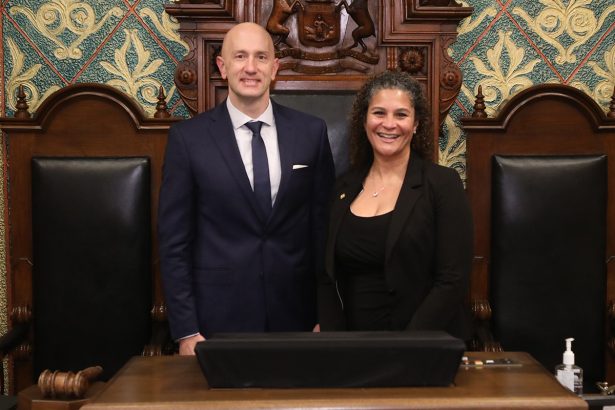How Social and Emotional Learning Became a Priority for Schools During the Pandemic

Get stories like this delivered straight to your inbox. Sign up for The 74 Newsletter
Social and Emotional Learning (SEL) is the process of developing students’ and adults’ knowledge, skills, attitudes and behaviors that they need to make successful choices. And it has been in schools longer than it has had an official title.
The term SEL was coined in the mid-1990s, but “for as long as public schools have been around, public school educators have worked with the whole child to make sure that the child felt safe, secure and ready to learn,” said Michigan Education Association (MEA) President Paula Herbart.
During a pandemic that isolated children and left over 3,000 children in Michigan grieving a primary caregiver — with Black children accounting for 40% of impacted kids — state and education leaders emphasize that the need for social and emotional learning in schools is greater now than it ever has been.
“It’s such a powerful thing for us as individuals to be able to identify and understand our own emotions, but then to also understand what are our options and what we can do with them in our relationships,” said state Rep. Felicia Brabec (D-Pittsfield Twp.), who also is a clinical psychologist. “These are really important life skills that we use as adults. It makes good sense to integrate this in schools, because there are lots of places where we talk about life skills, and this is just another life skill. This is important to be able to have successful future generations.”
The pandemic has especially affected young people and their social and emotional well-being.
Prior to the COVID-19 pandemic, one study conducted by Detroit Public Schools Community District in collaboration with the University of Michigan Transforming Research into Action to Improve the Lives of Students (TRAILS) program and Youth Policy Lab, found that more than half of student respondents in DPSCD had experienced symptoms of anxiety or depression.
“The findings made it clear that DPSCD students were experiencing high levels of need around mental health even before COVID-19,” said Robin Jacob, co-director of the Youth Policy Lab and an associate research professor in the U of M Institute for Social Research. “Given the disproportionate impact of the pandemic on communities of color, the need for mental health support for Detroit students is even greater now.”
Gov. Gretchen Whitmer signed the state’s more than $17 billion School Aid budget in July, which included $240 million over three years for school counselors, psychologists, nurses and social workers in high-need districts and an increase of $17 million to support school-based mental health programming.
The Michigan Department of Education included student health, safety and wellness as a goal in the state’s strategic education plan and set SEL standards for Michigan’s schools that focus on five key competencies: self-awareness, self-management, social awareness, relationship skills and responsible decision-making.
Herbart said that the governor’s investment for K-12 education is a step in the right direction to address students’ social and emotional well-being, but there’s more work to do.
“The problem is that for years of austerity, we let go of our social workers and we let go of counselors, as things that are nice but not critical. And when are they critical? In a pandemic or after a pandemic. And now we just don’t have people that have gone into those jobs in order to fill them,” Herbart said. “Now we’re seeing this crisis of a shortage of social workers, counselors, support professionals and behavioral specialists who help every student, not just students that have otherwise abilities.”

In February, Barbec introduced a bill to help address this issue.
House Bill 4156 would require school districts to staff one counselor for every 450 students in the district. The bill was referred to the GOP-led House Education Committee and hasn’t seen any action since.
“It’s not that I think that one in 450 is where we should be. It’s not, but it’s a step in the right direction,” Brabec said. “I see all of the work that we get to do is often incremental. I’m going to continue to work with my Republican colleagues to see what needs to be changed in the bill and how we get to this final end goal.”
During the 2018-19 school year, Michigan had the second worst school counselor-to-student ratio in the nation, only behind Arizona, with one counselor for every 691 students. The American School Counselor Association recommends states have one counselor for every 250 students.
Despite SEL’s history in public school education and its importance during the pandemic, right-wing commentators, like Fox News’ Tucker Carlson, have started targeting it as the latest culture war flashpoint in schools.
The politicization has had state-level effects in a few states. The Idaho Department of Education, which has championed SEL for years, is distancing itself from the term because of how it’s been politicized. In Virginia, Parents Defending Education (PDE), a dark money group with connections to the Koch political network, is targeting the state’s Department of Education and local school districts for setting SEL standards.
It’s such a powerful thing for us as individuals to be able to identify and understand our own emotions, but then to also understand what are our options and what we can do with them in our relationships. These are really important life skills that we use as adults.
In Michigan, GOP gubernatorial candidate Ryan Kelley was critical of SEL earlier this month during the Newaygo Grassroots Dinner Party. Kelley compared SEL to Critical Race Theory, a graduate school-level concept focused on the history and ongoing effects of white supremacy in the United States.
“We’re talking about the Department of Education, the schools, Critical Race Theory, SEL. It’s all Critical Race Theory. It’s all there to divide this skin color to be less likely to succeed and this skin color should feel guilty because of whatever they did in the past,” Kelley said. “So I said when I’m elected governor and the Department of Education doesn’t want to get on board with getting rid of all of the divisive teaching … I will happily and enthusiastically as governor sign an executive order that eliminates the Department of Education.”
State Rep. Darrin Camilleri (D-Brownstown Twp.), a former teacher, said that politicizing SEL is unnecessary and harmful for students.
“Teaching empathy and teaching kindness and teaching problem solving should not be political. It should not be used to divide an already toxic educational debate. Especially during a pandemic, we’re learning that there are so many more needs of our students that need to be met, for example, their emotional wellbeing and mental health,” Camilleri said.
Michigan Advance is part of States Newsroom, a network of news bureaus supported by grants and a coalition of donors as a 501c(3) public charity. Michigan Advance maintains editorial independence. Contact Editor Susan Demas for questions: info@michiganadvance.com. Follow Michigan Advance on Facebook and Twitter.
Get stories like these delivered straight to your inbox. Sign up for The 74 Newsletter

;)